We must control how we respond to the coronavirus pandemic for the sake of our mental health
These are worrying times but it’s worth paying attention to the effect this crisis is having on our minds.
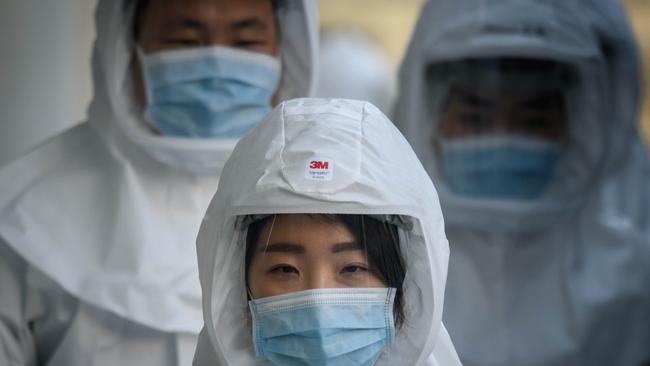
“Later, as he sat on his balcony eating the dog, Dr Robert Laing reflected on the unusual events that had taken place within this huge apartment building during the previous three months.” From this marvellous first line unfolds JG Ballard’s dystopian novel High-Rise, the tale of an up-market apartment block where petty spats between floors quickly degenerate into tribalism, savagery and dog-eating. The moral of the story: civilisation is a thin and fragile thing; comfortable lives can unravel; take nothing for granted. “Civilised life,” Ballard suggested, “is based on a huge number of illusions in which we all collaborate willingly. The trouble is we forget after a while that they are illusions and we are deeply shocked when reality is torn down around us.”
Cue images from coronavirus-hit Britain: shelves emptied of food, airports empty, football grounds eerie, life up-ended. One of the most frightening things about this pandemic, after the threat of death and grief, is its exposure of how fragile our way of life is. We might have felt that our “civilised life” was unassailable, that the events, rituals and institutions which anchor our lives were set in concrete, but no: public services creak, elections are postponed, families are separated, culture is cancelled, sport is on hold, churches, mosques and synagogues close.
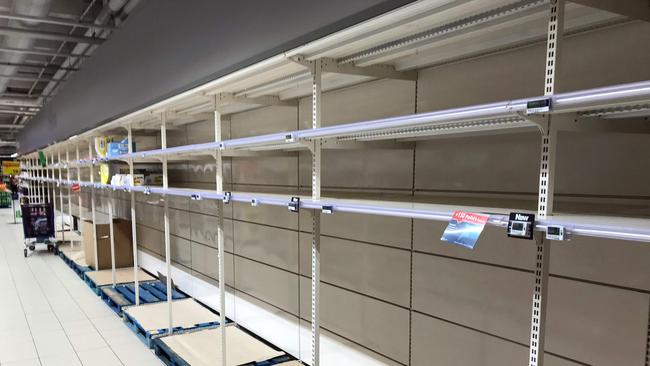
When the rug of normality is pulled from under us like this, the inevitable result is anxiety. We are unanchored, unsure of what will happen next. I feel a tightness in the throat as I heave a sack of rice into my supermarket trolley, a stab of horror at the cough behind me.
This shock to our systems hits a country already struggling with widespread mental health problems, especially among children and young people. While we are understandably preoccupied with the nation’s physical health, it is worth paying some attention to the effect this crisis is having – and could have – on our minds. True, we are living in unavoidably anxious times, but there are certain responses to coronavirus that may only raise the nation’s cortisol levels higher.
One anxiety-amplifying trend is the politicisation of coronavirus. I understand those who are baffled by the government’s decision not to close schools and take more radical measures, but to ascribe this to Tory callousness about death is wildly irresponsible. To the stew of fear and apprehension it adds anger.
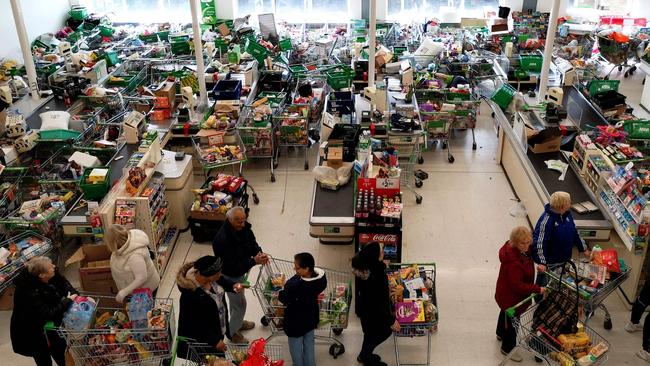
Does it help the person with a respiratory disease, dreading this illness, to suggest that they are being thrown under a bus because that nasty Boris Johnson doesn’t care? Yes, we must be allowed to question and probe the official response, but this is not an issue on which we should be taking sides. Brexit taught us the habit of polarisation, but turning this into the new national argument will do nothing for our collective anxiety levels.
Another unhelpful response is the use of warlike metaphors. Many times in recent weeks I have heard this crisis framed as a battle. Public health strategies are “battle plans”, doctors and nurses are “fighting on the front line”. The urge for politicians to reach for such metaphors is understandable. Britain’s national identity still draws on the stoicism shown in 1940, when Britain stood alone against Hitler. Yet I’m not sure the war metaphors are too helpful for our national peace of mind. Suggesting that we are being invaded by some sentient hostile force inflames a situation that doesn’t need it. Best to talk in more sober terms where possible.
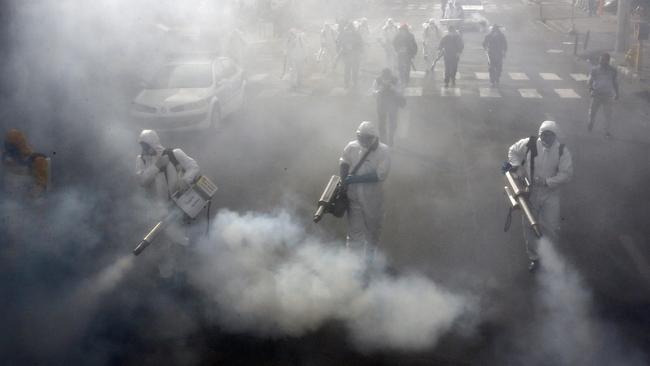
The most tempting, and dangerous, response is to obsessively tune in to 24-hour news and social media. I plead guilty to news-wallowing even in normal times. I’m talking (beyond my cover-to-cover reading of The Times) checking the BBC news website every couple of hours, regular scrolls through Twitter, flicking on Sky News for updates. My eyeballs hoover up the breaking news ticker at the bottom of the screen with the urgency of a cocaine addict snorting a line. This condition has been exacerbated by the coronavirus pandemic. The junkie in me craves a bank of screens, as at NASA mission control, each flashing up the latest from all corners of the globe: Disneyland closing, no climbs up Everest, stock markets crashing. If a minor Finnish celebrity contracts the virus I need to know this minute!
The coronavirus is to news stories what the megalodon was to fish: mind-bendingly enormous, the Big One. It is global, local, personal, political, dramatic, sensational, unpredictable. All killer, no filler. It is like one of those TV retrospectives of a whole decade, condensed into a single week. There are no slow news hours, let alone slow news days. After decades in which we have been primed for ever-greater sensation and ever more clickbaity drama, this story is a highly seductive thing. But there is a cost in news-obsessing: peace of mind.
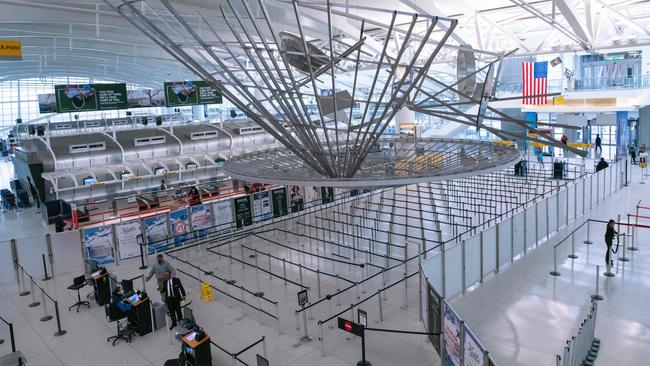
We hunger for news in the hope that it will provide answers – and that those answers will be a comfort. We think arming ourselves with information will allow us to regain a sense of control; information is power, we have always been told. But news-wallowing does not ease our worries. Endlessly checking the news to release ourselves of anxiety is like glugging saltwater to release ourselves of thirst: initially comforting, ultimately counter-productive. Social media is now a repository of fears, conspiracy theories, doomsday scenarios – and our neurological kit cannot cope too well with all this bad news.
Evolutionary psychologists have long talked about “the negativity bias”; our tendency to hold on to negative information and dwell on it in a way we don’t with positive information. For cavemen, a bias towards the frightening was a matter of survival; it was more useful to focus on the sabre-toothed tigers than the beauty of the sky. And so when we bathe our brains in news which is both terrifying and hopeful, negative and positive, it is largely the scary stuff that sticks. It is wise, therefore, to expose ourselves to the minimum amount.

A few days ago the Dalai Lama tweeted: “It’s not enough to pray for peace of mind, we have to examine what’s disturbing us and eliminate it.” He’s right, I realised, and eliminated Twitter.
It’s not enough to pray for peace of mind, we have to examine what’s disturbing us and eliminate it. In the same way, just wishing to be well won’t cure physical illness; you have to adopt the preventive measures and take the prescribed medicine.
— Dalai Lama (@DalaiLama) March 13, 2020
Many are self-isolating from others to preserve their physical health; for the sake of our mental health, many of us would benefit from self-insulation from 24-hour news too.
We don’t yet have an antidote to coronavirus, but a partial antidote to corona-anxiety may be to tune out the endless news which is not personally relevant, tuning in to the natural world more, and choosing courtesy over rancour where possible. We may not be able to control the pandemic itself, but for the sake of our state of mind, we must be careful to control how we respond to it.
The Times



To join the conversation, please log in. Don't have an account? Register
Join the conversation, you are commenting as Logout